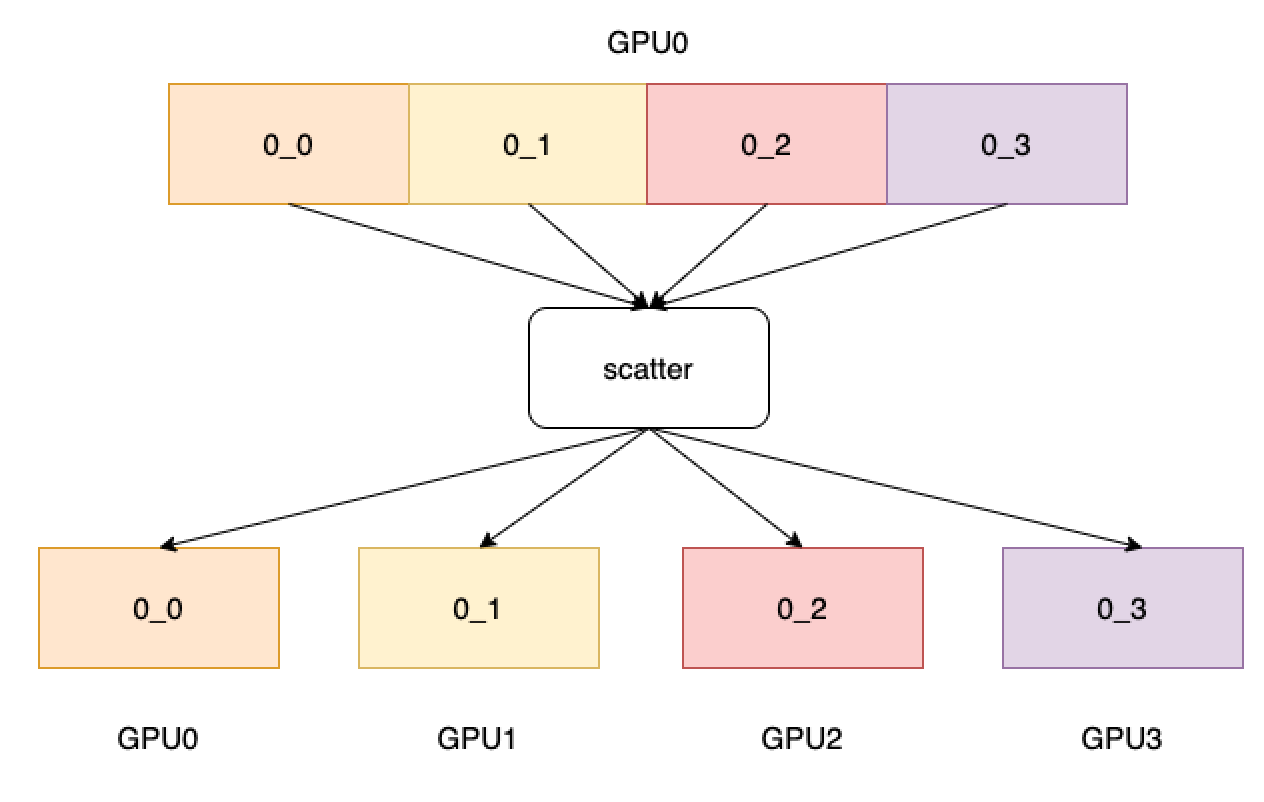scatter
- paddle.distributed. scatter ( tensor: Tensor, tensor_list: Sequence[Tensor] | None = None, src: int = 0, group: Group | None = None, sync_op: bool = True ) task | None [source]
-
Scatter a tensor to all participators. As shown below, one process is started with a GPU and the source of the scatter is GPU0. Through scatter operator, the data in GPU0 will be sent to all GPUs averagely.

- Parameters
-
tensor (Tensor) – The output Tensor. Its data type should be float16, float32, float64, int32, int64, int8, uint8, bool or bfloat16.
tensor_list (list|tuple) – A list/tuple of Tensors to scatter. Every element in the list must be a Tensor whose data type should be float16, float32, float64, int32, int64, int8, uint8, bool or bfloat16. Default value is None.
src (int) – The source rank id. Default value is 0.
group (Group, optional) – The group instance return by new_group or None for global default group.
sync_op (bool, optional) – Whether this op is a sync op. The default value is True.
- Returns
-
None.
Examples
>>> >>> import paddle >>> import paddle.distributed as dist >>> dist.init_parallel_env() >>> if dist.get_rank() == 0: ... data1 = paddle.to_tensor([7, 8, 9]) ... data2 = paddle.to_tensor([10, 11, 12]) ... dist.scatter(data1, src=1) >>> else: ... data1 = paddle.to_tensor([1, 2, 3]) ... data2 = paddle.to_tensor([4, 5, 6]) ... dist.scatter(data1, tensor_list=[data1, data2], src=1) >>> print(data1, data2) >>> # [1, 2, 3] [10, 11, 12] (2 GPUs, out for rank 0) >>> # [4, 5, 6] [4, 5, 6] (2 GPUs, out for rank 1)
